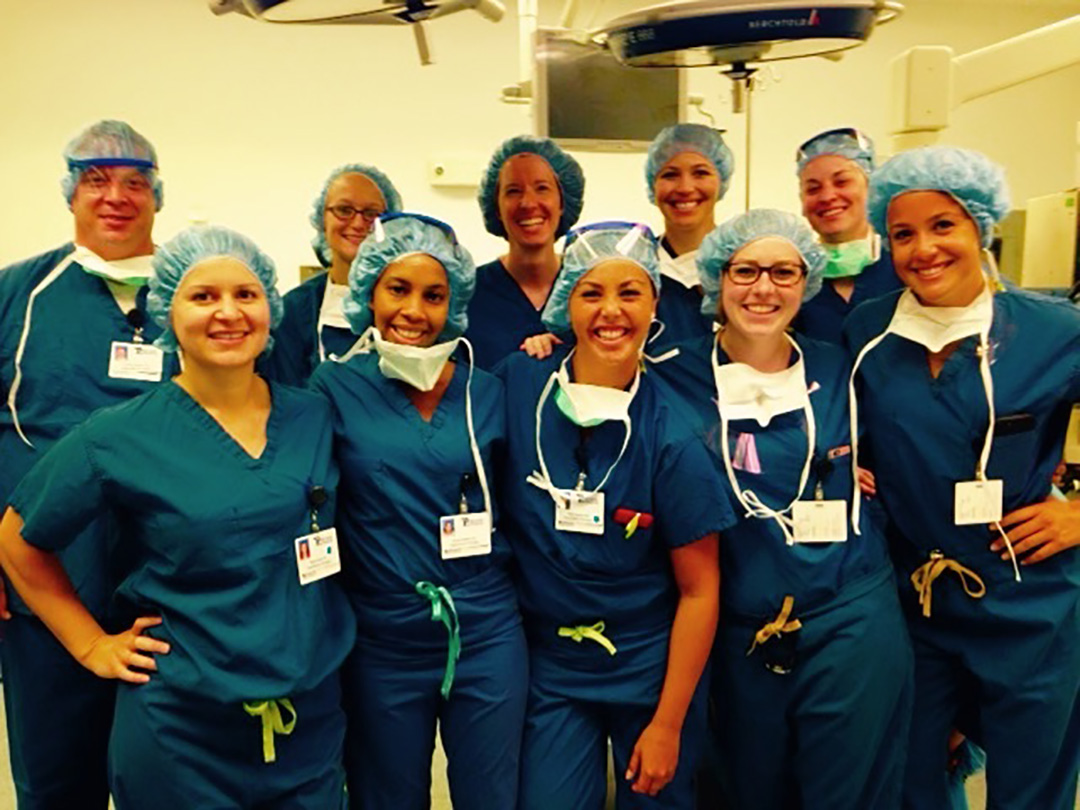Career Resources

A Day in the Life of a PA Surgical Resident
PA Kimberly Mackey says choosing to complete the Norwalk/Yale post-graduate residency program is by far the best thing she has done for her career. She was exposed to surgical sub-specialties including trauma and had daily first-assistant opportunities in the operating room.
Accrue Healthcare Experience and Patient Care Experience Before Applying to PA School
Accruing Healthcare Experience (HCE) and Patient Care Experience (PCE) hours is one of the most time-intensive aspects of applying to PA school. Here are recommendations to obtain these patient-related work hours.
PA School Application Checklist and Timeline
This quick checklist and timeline will provide some structure when preparing your application for CASPA. Use this guide to prevent potentially costly mistakes and delays in submitting your application.
5 Tips for Surviving Your Clinical Rotations
Program directors share collected wisdom to ensure you make it through your clinical phase, plus student resources to help you along the way.
Three Steps to Making a Non-Clinical Career Move
The PA profession offers unique latitude and flexible employment opportunities across the medical spectrum. For those PAs interested in non-clinical career options, Jennifer Hohman, founder of PA Career Coach, offers tips and ideas for your next steps.
What It’s Really Like to be a PA in Hospital Medicine
Hospitals are one of PAs’ largest employer groups, and hospital medicine is an ever-changing practice setting. Learn about one hospital internal medicine PA’s daily routine.
Strategies for PAs to Prevent Burnout
While work/life balance will always be provisional and imperfect, it is worth seeking; it is essential PAs take care of themselves to prevent professional and personal burnout.
PA Portfolio
PA Portfolio is a secure, online sharing and storage tool for important education, licensing and certification, and career records.
Advice for PA Students from the AAPA Community
Huddle, AAPA’s members-only online community, fosters discussion amongst PAs and serves as a repository for helpful career-related information. Recently, seasoned PAs shared their best advice for PA students and new grads.
PA Student to PA: Navigating the Transition
While the transition from program to practice may seem overwhelming and nerve-wracking, PA students can set themselves up for a successful career start with these tips.
Plan Time Away and Return to Practice
Taking a break and returning to practice is a common pattern in the PA career cycle. Planning and preparation can make all the difference in how smooth or how challenging the resumption of PA practice will be.
PAs and Consent to Settle
AAPA Insurance offers consent to settle with no hammer clause, and might be the right choice for you.

What is a PA?
What is a PA (physician associate/physician assistant)? PAs are licensed clinicians who practice medicine in every specialty and setting.
Career Experts Offer PAs Advice on Contract Negotiation
Three career experts offer their advice on AAPA member-submitted contract negotiation questions.
Surviving Your Didactic Phase
Most PAs recall their PA education as being the most rigorous and challenging of their academic careers. The hard work will be worth it as you learn how to become an outstanding clinician.

